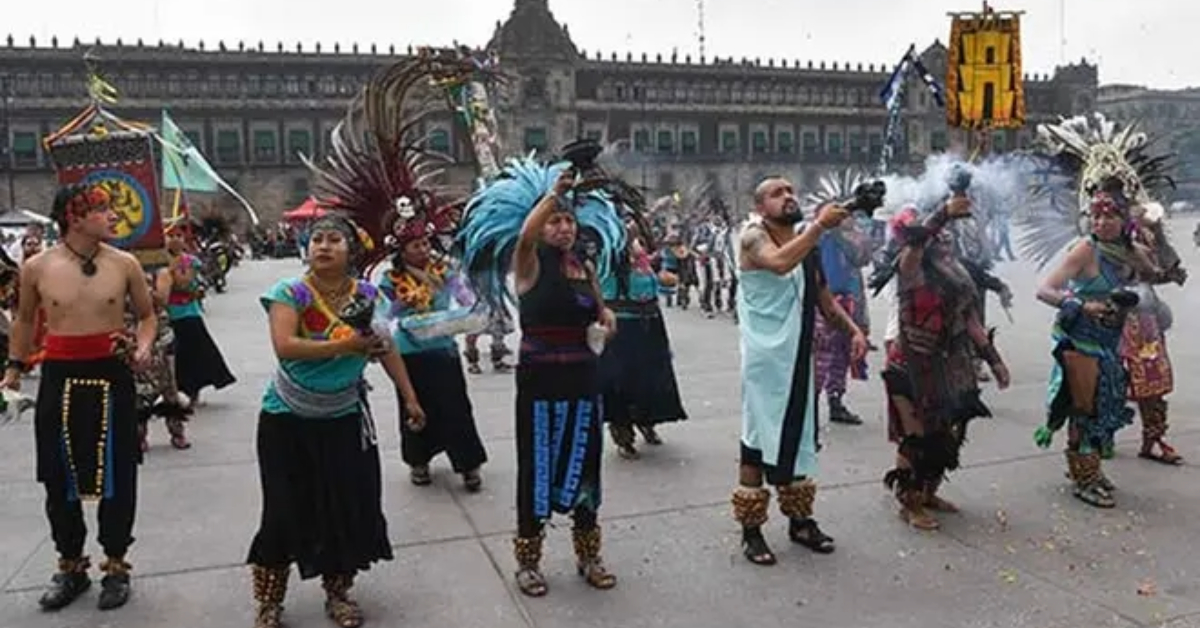Mexico City will honor the 700th anniversary of Tenochtitlán with cultural events in July, including video mapping, opera in Nahuatl, and a historic march to the Zócalo.
Mexico City is preparing an ambitious program of events this July to commemorate the 700th anniversary of the founding of Mexico-Tenochtitlán, the ancient Mexica capital that gave rise to modern-day Mexico City. Mayor Clara Brugada unveiled the plans during a morning press conference led by President Claudia Sheinbaum.
The commemoration aims to honor the cultural and historical legacy of the Mexica people through a wide array of public events and artistic performances, many of which will take place in iconic locations across the capital.
Video Mapping and Illuminated Pathways
One of the main attractions will be a video mapping installation projecting the history of Tenochtitlán. The show will be presented nightly from July 11 to July 27, transforming public spaces into a visual storytelling platform that highlights the rise and legacy of the Mexica civilization.
Another major initiative, called The Island Path (“La Ruta de la Isla”), will mark the original perimeter of Tenochtitlán within the Historic Center. Streets will be enhanced with new lighting, borders, and symbolic elements to evoke the layout and spirit of the ancient island city.
Cultural Parade and Traditional Dance
Adding to the grandeur of the occasion, a massive cultural march featuring 3,500 traditional dancers is scheduled to move from Chapultepec to the Zócalo, Mexico City’s central plaza. The spectacle is expected to highlight Indigenous dances and attire that represent the rich cultural diversity of the country.
Mayor Brugada emphasized the significance of the event as a symbolic reconnection with the city’s ancient origins:
“The city our ancestors founded 700 years ago lives on, and its heart beats in every corner of our city. This year, together with the Mexican government, we will hold a series of celebrations.”
Opera in Nahuatl and Art Exhibitions
In a nod to the living presence of Indigenous languages, opera performances in Nahuatl will be held at both the Palacio de Bellas Artes and in the Zócalo. These performances are designed to elevate and preserve the linguistic heritage of the Mexica people, whose language once dominated the Valley of Mexico.
An art exhibition of cactus sculptures will also take over Paseo de la Reforma, paying tribute to the iconic plant central to the foundation myth of Tenochtitlán—where an eagle was seen perched on a cactus, devouring a snake.
Education and Community Engagement
To ensure younger generations take part in the celebrations, a coloring book about Mexica history will be distributed to all elementary school students across the city. The initiative is intended to make the story of Tenochtitlán accessible and engaging for children.
Main Event on July 26
The culmination of the month-long celebration will occur on July 26, the recognized founding date of Mexico-Tenochtitlán. A major historical reenactment is planned, organized jointly by the Mexico City government and federal authorities. This event will highlight the foundation story of the ancient city and its enduring influence on Mexican identity.
President Claudia Sheinbaum, who oversaw the announcement alongside Mayor Brugada, praised the efforts to foreground Mexico City’s Indigenous roots and reaffirm the capital’s cultural identity.
These events are expected to draw residents and tourists alike, bringing attention to the profound influence of Tenochtitlán on the identity and spirit of Mexico. As the city looks back 700 years, it also reaffirms its commitment to honoring the traditions, languages, and resilience of its Indigenous forebears.
Mexico City will honor the 700th anniversary of Tenochtitlán with cultural events in July, including video mapping, opera in Nahuatl, and . . .












